Old, they say, is gold. Many people love vintage homes for their craftsmanship and intriguing architectural details. From arched doorways to crown moldings and glass-stained windows, older homes have many features that attract homebuyers. However, regardless of the charm they exude, older homes can come with a host of maintenance challenges.
Plumbing is one such challenge. Even a general home inspection before you buy may not uncover every problem – or potential problem. Hiring a professional plumbing inspector is an investment that could save you from purchasing a “money pit” should extensive problems be discovered – or, at least, let you know how much to budget for repairs or use as a bargaining chip to negotiate the sales price down should you decide to proceed.
At Adams and Son Plumbing, we want our valued customers to make wise decisions. That is why we have put together some plumbing issues that you should be aware of if you are planning to buy a house that is older than a few decades. And if a vintage house is already your home, here is what you need to keep your eyes open for.
Piping Problems in Older Homes – Quietly Ticking Time Bombs
Pipes are usually out of sight and out of mind. Unfortunately, old homes tend to have pipes that are near the end of their useful life, or are made of materials that have proven to be a health hazard or prone to premature deterioration. The good people at Express Sewer & Drain, Rancho Cordova, CA, provide a comprehensive list that includes the following.
Old piping – Homes built before the 1990s could have outdated, hazardous piping material no longer approved by state building codes.
There are three types of outdated pipes that you may come across in an old house:
Lead – In the past, sewer lines and water main lines were generally made of lead. One of the oldest metals used for piping, lead was the most common material prior to cast iron – and was also used to solder copper pipe fittings. However, lead was eventually proven to be highly toxic. There is no safe level of lead exposure – especially for pregnant women and children. According to the Centers for Disease Control and Prevention (CDC), even at low levels, lead has been shown to affect IQ, ability to pay attention and academic achievement. Making lead an even more insidious threat is its difficulty in being detected, as you cannot taste, smell or see it.
Our blog post – “Are Lead Pipes Contaminating Your Water?” – covers the dangers of lead pipes in greater detail. The United States restricted the use of lead since the 1920s and banned it completely in 1986 by amending the Safe Drinking Water Act.
Galvanized – Made of iron with a coating of zinc, galvanized pipes were commonly used for water lines in houses built before the 1960s. Zinc erodes over time, leaving the pipe to corrode and break. Though these pipes are durable (they can last for 60 years), they start clogging much sooner due to rust. Minerals present in the water react with the pipe, resulting in mineral build-up. This, in turn, results in corrosion. Our blog post – “How to Tell if Your Pipes are Corroding” – covers issues with galvanized pipes (as well as polybutylene pipes) in further detail.
Polybutylene –Polybutylene pipe was introduced as a replacement for copper lines in the 1970s, and saw widespread use throughout the 1980s. Unfortunately, the manufacturer was forced to pay out millions of dollars after a class action lawsuit alleging the pipes were defective. Although the manufacturer never acknowledged a defect, oxidants in public water systems caused a chemical reaction with the plastic, leading it to flake, become brittle and crack. Although it was used mainly in mobile home installations, any home constructed or remodeled in the 1980s and early 1990s may have the plastic pipes somewhere. No longer manufactured or rated by U.S. building codes, any existing polybutylene pipes should be replaced before they fail.
Bellied pipes – Most of your home’s plumbing runs under your house. Your home shifts and settles over the years, causing your pipes to slope or belly. When the pipe shifts downward, it creates a negative slope, restricting the flow of water and creating bends where waste and sediment collect over time. When left undetected, bellied pipes can cause blockages and leaks.
Defective sewer line – A defective sewer line can cause sewage to seep into the ground or back up into your home. Our blog post – “Common Sewer Line Problems and Their Causes” – covers this issue in greater detail, but old homes are more prone to have a sewer line that’s shifting or damaged by tree roots. In addition, vintage homes were built before the invention of today’s popular appliances – such as dishwashers and garbage disposals – which put extra demand on a sewer line. The situation can be made worse if your home has had extensive renovations that include plumbing fixtures.
Old Fixtures and Connections That Can’t be Fixed
Sinks, tubs and toilets all have a useful life – as do faucets. The first three are known in the trade as “fixtures,” while faucets, shower heads, shower valves and shutoff valves – basically, any device designed to control and guide the flow of water – are known as “fittings.” Our blog post – “Why You Need to Upgrade Your Plumbing Fixtures and Fittings” – covers this topic in greater detail.
As a blog post for All City Plumbing, Rancho Cucamonga, CA, states, “In addition to lacking in style, outdated plumbing fixtures and connections also pose a more serious risk of falling apart, causing leaking and even flooding. This is especially common when significant amounts of limescale have built up on your fixtures over time.”
Express Sewer & Drain adds this observation: “Corrosion and general wear and tear can lead to restricted water flow, broken knobs, and leaks that make simply using water in the house an inconvenience at best and an expensive disaster at worst. While many people try to simply ‘get by’ with failing plumbing, things have a way of breaking at the worst possible time.”
Botched Amateur Repairs by Previous Owners Throughout the Years
Previous owners may have tried their hand at DIY repairs in an attempt to save money. As Scott Sidler writes for The Craftsman Blog, “When you buy an older home, you’re buying into the repairs the previous owners may or may not have done. For better or for worse, new homeowners are at the mercy of what previous owners have done to the plumbing system. The older the home, the better the odds that significant repair work has been done.
“Particularly for vintage homes without proper documentation, it’s not obvious to know exactly what kind of work has and hasn’t been completed. That’s why it’s always a good idea to have a plumbing professional stop by to evaluate the condition of the entire plumbing system.
“An experienced plumber can provide much-needed insight into the health of your existing system and offer guidance on expected maintenance requirements. Without their expertise, homeowners may be flying blind into serious plumbing challenges.”
The Take-Home Message
Thanks, Scott! We couldn’t have said it any better ourselves! Keeping the plumbing of your old house in top condition is essential in keeping it a comfortable, enjoyable and healthy home for you and your family. If you’re looking for an experienced plumber, our master plumbers at Adams and Son Plumbing have proudly served Central Florida homes and businesses with the highest level of quality and experience for over 60 years. We are family-owned and operated, and all of our plumbers are state-certified master plumbers. Contact us to get – and keep – your home’s plumbing in top repair.
The post Common Plumbing Problems in Old Homes appeared first on Adams and Son Plumbing Services.
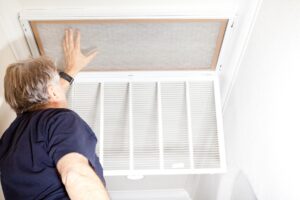

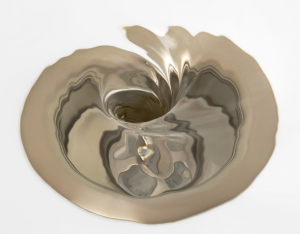 It’s happened to you—you’ve come across a clogged or slow-moving drain in your home. The next question is “What can I do?” We know that this is something that you’re not looking forward to handling. Trying to figure out when it’s going to work for you to have a professional over to your home isn’t always convenient. Because of this, we understand how tempting it can be to use chemical drain cleaners.
It’s happened to you—you’ve come across a clogged or slow-moving drain in your home. The next question is “What can I do?” We know that this is something that you’re not looking forward to handling. Trying to figure out when it’s going to work for you to have a professional over to your home isn’t always convenient. Because of this, we understand how tempting it can be to use chemical drain cleaners. Sometimes, there are things that you’re missing in your home. You can get by with missing certain things in other areas of your home, but your bathroom is one of those areas that you should treat with care.
Sometimes, there are things that you’re missing in your home. You can get by with missing certain things in other areas of your home, but your bathroom is one of those areas that you should treat with care.
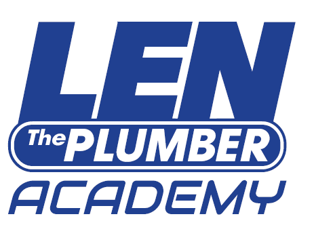
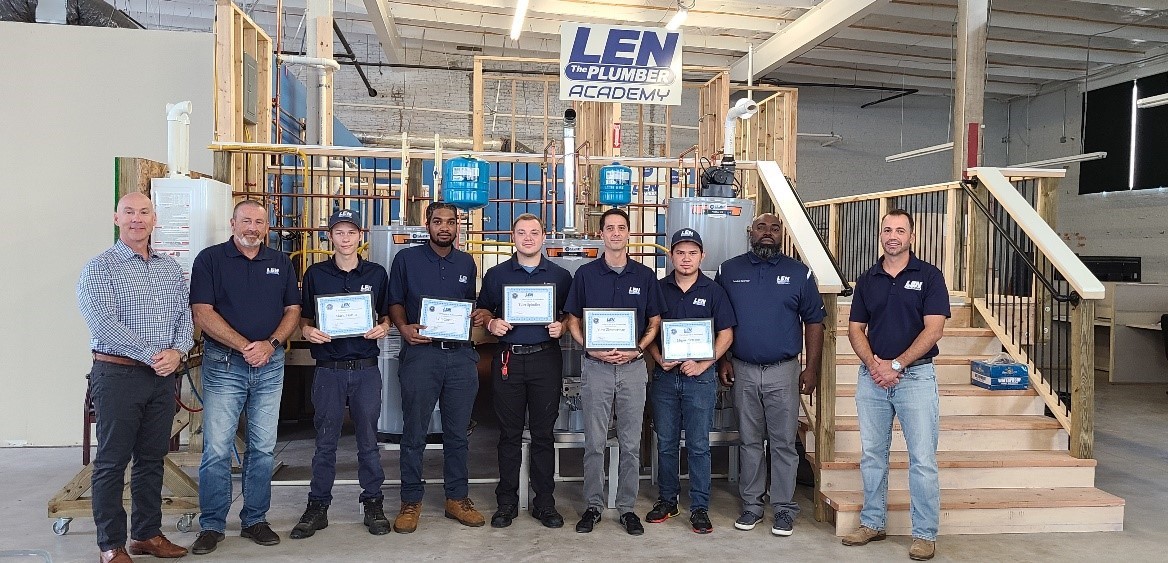
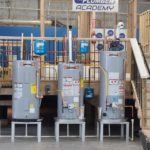






 This
This 